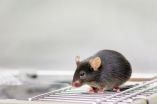(Press-News.org) Cerebral malaria is a serious complication of infection with the malaria parasite, affecting approximately one in a thousand children in areas where malaria is common. Many of the patients die, and among those who survive, about a third have lasting cognitive and neurological disabilities, including epilepsy and learning disorders. A study published on March 6th in PLOS Pathogens shows that a known drug can prevent brain damage in a cerebral malaria mouse model and eliminate subsequent neurological deficits.
Infection with the malaria parasite elicits a strong immune response in the patient, and it is known that both parasite and host response contribute to the nervous system problems in cerebral malaria. Lena Serghides, from the Toronto General Research Institute, Canada, and colleagues are interested in modulating the host response to malaria infection, in addition to anti-parasite drugs, with the goal to improve outcomes in patients.
They focused on a drug called rosiglitazone (approved for patients with diabetes) which activates a molecule called PPARɣ and is known to have anti-inflammatory and anti-oxidant properties. Using a mouse model of cerebral malaria, they show that when they give rosiglitazone in addition to antimalarial drugs at the onset of cerebral malaria symptoms, mice are more likely to survive, and the survivors which had received rosiglitazone did not show the brain abnormalities or cognitive defects seen in surviving mice that had only received antimalarial drugs.
When they compared both groups of mice at the molecular level, they found that rosiglitazone protects the integrity of the blood-brain-barrier and increases the level of anti-oxidant enzymes and of neuroprotective factors in the brain. One of the latter, called BDNF (for brain-derived neurotropic factor), was also increased in the blood of adult human patients with uncomplicated malaria who had participated in a clinical trial and received antimalarial drugs plus rosiglitazone, compared with other trial participants who had only taken antimalarials.
"Our results demonstrate that rosiglitazone adjunctive therapy resulted in increased survival and protection from long-term cognitive impairments in a mouse model of cerebral malaria", the authors say, "And the clinical trial data suggests that this approved drug, which has an excellent safety profile when taken for limited periods, might also induce such putative protective mechanisms in humans". They conclude that "in view of these results, testing rosiglitazone in patients with cerebral malaria is warranted."
INFORMATION:
Funding:
Financial support for this work provided by Grand Challenge Canada Stars in Global Health (LS), Defense Advanced Research Projects Agency grant 58217-LS-DRP (KCK), Canadian Institutes of Health Research MOP-13721 and 244701 (KCK), Ontario HIV Treatment Network Junior Investigator Development Award (LS), and the Canada Research Chair (KCK). The funders had no role in study design, data collection and analysis, decision to publish, or preparation of the manuscript.
Competing Interests:
I have read the journal's policy and have the following conflicts: The University Health Network holds intellectual property pertaining to the use of PPARc agonists for the treatment of severe malaria. The authors have no other financial interests related to this work. This does not alter our adherence to all PLOS Pathogens policies on sharing data and materials.
Citation:
© 2014 Serghides et al. This is an open-access article distributed under the terms of the Creative Commons Attribution License, which permits unrestricted use, distribution, and reproduction in any medium, provided the original author and source are credited.
IN YOUR COVERAGE PLEASE PROVIDE THIS LINK TO THE FREELY AVAILABLE PAPER:
http://dx.plos.org/10.1371/journal.ppat.1003980 (link becomes active March 6)
Authors of this research article:
Lena Serghides, University Health Network, Canada
Chloe R. McDonald, University of Toronto, Canada
Ziyue Lu, University Health Network, Canada
Miriam Friedel, Hospital for Sick Children, Canada
Cheryl Cui, University of Toronto, Canada
Keith T. Ho, University of Toronto, Canada
Howard T.J. Mount, University of Toronto, Canada
John G. Sled, Hospital for Sick Children, Canada
Kevin C. Kain, University Health Network, Canada
Drug protects mice against malaria brain damage, raises levels of BDNF in humans
2014-03-07
ELSE PRESS RELEASES FROM THIS DATE:
Simple urine test detects common causes of kidney dysfunction after transplantation
2014-03-07
Washington, DC (March 6, 2014) — A new noninvasive urine test can distinguish among different causes of acute kidney dysfunction after transplantation. The test, which is described in a study appearing in an upcoming issue of the Journal of the American Society of Nephrology (JASN), may allow patients to avoid invasive kidney biopsies when their transplanted organ is not functioning properly.
When creatinine levels are elevated in the blood of a kidney transplant recipient, it is an indication that the transplanted kidney is not functioning well. There are several reasons ...
Birds display lateralization bias when selecting flight paths
2014-03-07
Flocks of birds manage to navigate through difficult environments by individuals having predispositions to favour the left- or right-hand side, according to research published in PLOS Computational Biology this week.
Scientists at The University of Queensland's Queensland Brain Institute (QBI) and the Australian Research Council Centre of Excellence in Vision Science found that budgerigars display individual bias to fly to the left or right. This allows flocks to quickly navigate past obstacles by being able to split and not slow down due to crowding.
Dr Partha Bhagavatula, ...
Fighting for survival in the gut: Unravelling the hidden variation of bacteria
2014-03-07
This news release is available in Portuguese.
Our intestines harbour an astronomical number of bacteria, around 100 times the number of cells in our body, known as the gut microbiota. These bacteria belong to thousands of species that co-exist, interact with each other and are key to our health. While it is clear that species imbalances may result in disease, it is unclear at what pace does each species in the gut evolves, a process that contributes to the chance of a particular innocuous species becoming harmful to the host.
In the latest issue of the scientific ...
Contacts better than permanent lenses for babies after cataract surgery
2014-03-06
For adults and children who undergo cataract surgery, implantation of an artificial lens is the standard of care. But a clinical trial suggests that for most infants, surgery followed by the use of contact lenses for several years—and an eventual lens implant—may be the better solution. The trial was funded in part by the National Eye Institute (NEI), a component of the National Institutes of Health.
A cataract is a clouding of the eye's lens, and can be removed through a safe, quick surgical procedure. After cataract removal, most adults and children receive a permanent ...
NASA's Hubble Telescope witnesses asteroid's mysterious disintegration
2014-03-06
NASA's Hubble Space Telescope has recorded the never-before-seen break-up of an asteroid into as many as 10 smaller pieces.
Fragile comets, comprised of ice and dust, have been seen falling apart as they near the sun, but nothing like this has ever before been observed in the asteroid belt.
"This is a rock, and seeing it fall apart before our eyes is pretty amazing," said David Jewitt of the University of California at Los Angeles, who led the astronomical forensics investigation.
The crumbling asteroid, designated P/2013 R3, was first noticed as an unusual, fuzzy-looking ...
Nearby star's icy debris suggests 'shepherd' planet
2014-03-06
VIDEO:
NASA Goddard's Aki Roberge explains how observations with the Atacama Large Millimeter/submillimeter Array in Chile tell us about poison gas, comet swarms and a hypothetical planet around Beta Pictoris....
Click here for more information.
An international team of astronomers exploring the disk of gas and dust around a nearby star have uncovered a compact cloud of poisonous gas formed by ongoing rapid-fire collisions among a swarm of icy, comet-like bodies. The researchers ...
Study provides new information about the sea turtle 'lost years'
2014-03-06
MIAMI – A new study satellite tracked 17 young loggerhead turtles in the Atlantic Ocean to better understand sea turtle nursery grounds and early habitat use during the 'lost years.' The study, conducted by a collaborative research team, including scientists from the University of Miami (UM) Rosenstiel School of Marine and Atmospheric Science, was the first long-term satellite tracking study of young turtles at sea.
"This is the first time we were able to show the maiden voyage of young turtles after they left the beach," said Rosenstiel School scientist Jiangang Luo ...
$4M grant to improve asthma care for So Cal Latino youth
2014-03-06
SAN DIEGO, Calif. (March 6, 2014)—A team led by researchers at San Diego State University has been awarded $4 million to enhance asthma education and treatment strategies in California's Imperial Valley, where children are twice as likely as the national average to suffer from asthma.
The grant will allow researchers to better understand the specific asthma needs of Imperial Valley's largely Latino/Latina population, as well as develop more effective approaches to treatment for families, communities, and physicians.
Approximately 4.5 million African-Americans and 3.6 ...
Fertilizer in small doses yields higher returns for less money
2014-03-06
URBANA, Ill. - Crop yields in the fragile semi-arid areas of Zimbabwe have been declining over time due to a decline in soil fertility resulting from mono-cropping, lack of fertilizer, and other factors. In collaboration with the International Crops Research Institute for the Semi-Arid Tropics (ICRISAT), University of Illinois researchers evaluated the use of a precision farming technique called "microdosing," its effect on food security, and its ability to improve yield at a low cost to farmers.
"Microdosing involves applying a small, affordable amount of fertilizer ...
Story Tips from the Department of Energy's Oak Ridge National Laboratory, March 2014
2014-03-06
MATERIALS – Lighter, stronger engines . . .
Engines could become lighter and more efficient because of a research project that combines the talents and resources of the Chrysler Group, Nemak S.A. of Mexico and Oak Ridge National Laboratory. The goal of the four-year $5.5 million cooperative research and development agreement is to develop an advanced cast aluminum alloy for next-generation higher efficiency engines. In addition to being lighter, the new alloy for cylinder heads would be stronger and capable of sustaining the higher temperatures and pressures of engines ...





